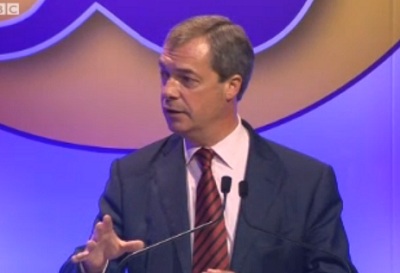The big question is what exactly does UKIP want?

This might be their one and only big chance but how to maximise it?
This parliament has been about as kind as possible to UKIP. The Conservatives and Lib Dems are both having to make unpopular decisions in government (and opting to make other unpopular ones to boot), while coalition pulls each party from its core vote. Labour has not fully recovered from its own time in office. None of the three leaders is well regarded. That provides a massive opportunity for UKIP but one it still has to capitalise on, and the strategy it chooses to try to do so will have significant consequences for the 2015 election. So what are the options and what will they do?
First of all, let’s go back to the start. UKIP was founded to secure the UK’s withdrawal from the EU. The first question to answer is whether that is still the driving force for the movement. That may sound as if it answers itself but it’s not all that simple. The lack of an alternative none-of-the-above party combined with the need for one has brought UKIP plenty of support which at best views the EU as a secondary issue. Banging on about Europe will enthuse the core (and activists) but may lose votes. On the other hand, playing the protest card offers the tantalising prospect of making the leap into the big league – but it’s not a card that they’ll hold indefinitely unless they displace one of the big three, or at least look like doing so shortly. That, however, is a bold dream. In the last 200 years, the only parties that can claim to have made that leap are Labour, which was greatly assisted by the enlargement of the franchise and the Liberals’ constant splitting, and the SNP in Scotland.
The question also matters because of Cameron’s pledge of a referendum. Now, UKIP voters might well be sceptical about Cameron’s ability or intention to actually deliver on that pledge given the history over the Lisbon Treaty, but it remains the best bet going for an early exit. As it happens, I think the sceptics are wrong: the Conservative leadership realised early on after making the Lisbon pledge that there was the risk – subsequently realised – that they may come to power after the treaty was fully ratified and as such would be unable to fulfil the promise, and sought to exclude that scenario from the commitment. It was too little too late for the die-hards. The 2017 pledge is different for two reasons. Firstly, Cameron and Hague would be driving the process rather than watching events from the sidelines; secondly, pressure from within the Conservatives would ensure it couldn’t be dropped or delayed.
Should UKIP therefore work in some form with the Conservatives, with the aim of securing a referendum which they could then try to defeat? Much as some (especially in the Conservatives) might find that attractive, I can’t see it happening. It might be the best bet for an early exit but from UKIP’s position, a lost referendum would be a disaster, probably closing the subject for 20 years or more – and if Cameron’s negotiations were successful, chances are UKIP would lose.
Should the Purples then try to work directly against the Conservatives then with the aim of playing a slightly longer game, pushing the Conservatives to the right against a Labour or Lib-Lab government favourable to further integration and increasing support for withdrawal? In other words, delaying the prospect of a referendum but increasing the chances of winning one when (or if) it happened.
Or should they ignore that kind of game-playing altogether and if so, do they aim to maximise representation in Westminster, concentrating on a dozen or so seats with the hope of establishing a permanent parliamentary presence, or do they seek to maximise votes, affect as many results as possible and so cause the other parties to amend their policies? Those who say seats are more important than votes are not necessarily wrong but miss the point: power is more important than either, and both seats and votes are a means to that end. UKIP, with its mid-teens vote share is currently exercising far more influence on the body politic than the Greens with their one MP.
-
Ultimately, the question it comes down to is this: which is more important – policy or power? Is UKIP a pressure group that would be ultimately content to see its key demands implemented, irrespective of how they come about, or does it seek to ultimately govern one day?
Answering that question is crucial for the other parties (and indeed for political betting), but also for UKIP because it may be many years before they compete again in such favourable circumstances, if ever. It took the Liberals six decades from their nadir to re-enter government, and then as a junior partner and at a high cost. If 2015 is UKIP’s best shot, then how do they make the most of it: do they seek to actively influence the composition of the other parties in Westminster? If so, how? Or do they seek to maximise their own results? If so, votes or seats? And then what afterwards? What, for example, is more valuable to them: five MP’s or an In/Out referendum?
These are not wholly mutually exclusive options but there are tensions between them. Likewise, protest or single-issue parties can become ones of government. Even so, UKIP have some big questions to answer, about their own identity and purpose and about the strategy they need to best champion that purpose. How they answer them will play no small part in determining the outcome of the 2015 election.